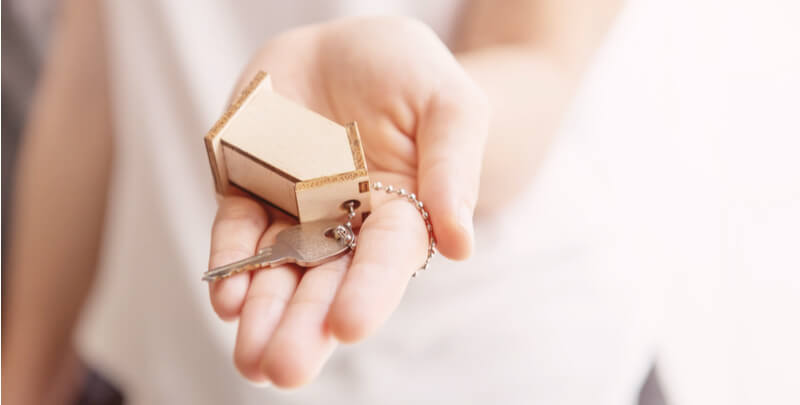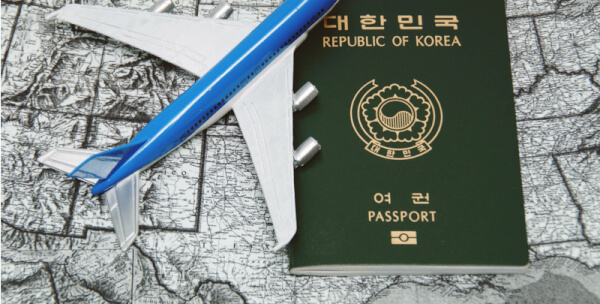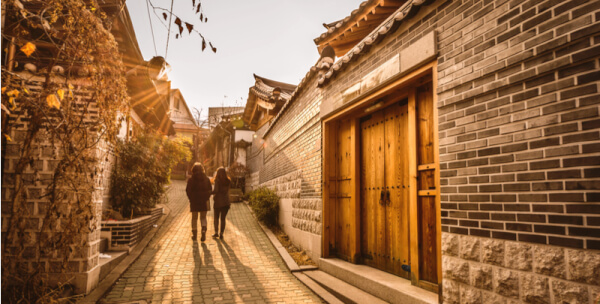Bank and public holidays in South Korea: 2017-2018 guide
South Korea is known by many in the international community to be a friendly, welcoming country that loves a good party. The same goes for holidays in South...

The excellent food, public transportation, internet infrastructure and safe culture have constantly drawn expats to South Korea. Now known widely as one of the most affordable places to live and start a business, more and more foreigners are setting up shop in the Asian country.
If you’re planning a move to Korea, one of the hardest things to do is find an apartment. Despite the relatively low cost of living - an apartment in central Seoul costs just ₩927,166.30 - the crowded market and complex language can make renting a challenge.
Whether you’re planning to live in Seoul, Busan, Jeju or in the much less expensive rural countryside, this guide will walk you through everything you need to know about renting an apartment in Korea.
In Korea, it’s pretty atypical to find an apartment without a real estate agent. These realtors, or budongsan can be found on every corner and every street, however, if you’re specifically looking for a realtor who speaks English, you way want to do some research in advance about what companies will know the language in your specific area.
Your realtor will be able to show you a range of listings, cut through a lot of complicated Korean-language advertisements and negotiate on your behalf to get you a good deal.
When you’re trying to make sense of rental advertisements, it’s a good idea to have a few Korean terms under your belt. The following are good to have in mind while you’re searching for your new home:
Most apartments in Korea will come unfurnished (gaguga-eobsneun)
It’s worth a shot! Landlords are sometimes willing to drop the monthly rent in exchange for a larger security deposit, or vice versa. It never hurts to try negotiating, and your landlord will probably expect you to. More importantly, if you’re working with a real estate agent they should be automatically geared towards getting you a better deal.
In Korea, it can be possible to secure an apartment without proof of employment, as long as you’re willing to put down a large deposit up front. Alternatively, jeonsae rentals don’t usually look for employment, as the landlord receives all of the money for the year before you even move in.
Because of the popularity of jeonsae agreements, there are laws in place that protect the tenant and ensure their money is returned to them at the end of their lease. Additionally, tenants who sign leases for less than five years must be guaranteed the ability to extend their lease up to five years. Otherwise, laws and rights are pretty standard, such as giving notice when you move out, restrictions around renovations (for both the tenant and the landlord), and clarifying the conditions under which you may be evicted.
Rental agreements vary a little, but should generally cover the rent rate, the amount of the deposit, the terms of breaking the lease, whether you can sublet and instructions about renovations.
How your deposit functions depends on your type of lease. In a wolsae, where you pay a deposit and then rent each month, you typically get your deposit back when your lease ends. That deposit amount is usually the equivalent of two months rent.
In a jeonsae, your rent and your deposit are interchangeable. You should get all of your money back, assuming you’re returning the apartment in good condition.
Utilities are typically the responsibility of the renter alone, but are sometimes split between all of the building’s tenants. Regardless, the bill for your gas, electric and other utilities typically need to be paid at the bank or the post office. You won’t be able to pay your utilities alongside your rent.
In order to rent, you’ll typically need proof of employment, proof of legal residency (a visa) and to sign a lease. You may also need a guarantor to sign the lease, especially if you can’t prove you have a job.
There are a few important things to consider when selecting your Korean apartment, including:
Usually, no. While some landlords may use online payment gateways that allow transactions from foreign banks (especially in officetels), most will want payment through a wire from a local bank account or even in cash. In order to keep a local bank account funded to pay your rent from, it’s a good idea to use a service like Wise to get the real exchange rate and cut down on foreign transfer fees.
If you’re starting your search online, these sites may be helpful to get an idea of what’s out there:
Avoiding scams can be tricky, but there are a few things you can do to keep yourself safe. For one, never rent a house or apartment without checking it out first yourself. Some scammers copy other apartment listings, then ask you to wire money before seeing the site - even though they don’t and never have had the right to rent out the property. Secondly, never accept a landlord’s offer to mail you a key after you send a deposit; it’s highly possible that your key will never come. Finally, if you think a fee, like a deposit, is unusually high, trust your gut. This is often indicative of a scammer trying to take you for as much money as they can before they run.
With that, you’re ready to start your search. Good luck!
*Please see terms of use and product availability for your region or visit Wise fees and pricing for the most up to date pricing and fee information.
This publication is provided for general information purposes and does not constitute legal, tax or other professional advice from Wise Payments Limited or its subsidiaries and its affiliates, and it is not intended as a substitute for obtaining advice from a financial advisor or any other professional.
We make no representations, warranties or guarantees, whether expressed or implied, that the content in the publication is accurate, complete or up to date.

South Korea is known by many in the international community to be a friendly, welcoming country that loves a good party. The same goes for holidays in South...

South Korea is a popular destination for expats looking to relocate abroad. It's a major technology hub and has thriving cities like Seoul. There are many job...

South Korea has had an industrial boom in the last decade, making their economy bigger, more stable and more attractive to foreigners. What was once a country...

As a senior, you must decide where you’re going to retire. South Korea is an exciting and modern option that many Western retirees consider. Whether you’re a...

Seoul has a large expat community drawn from all around the world, thanks to the large numbers of global businesses based there. IBM, Google and Toyota, for...

One important decision, if you’re moving to South Korea with family, is how to ensure that your children receive the best possible education. Luckily, South...